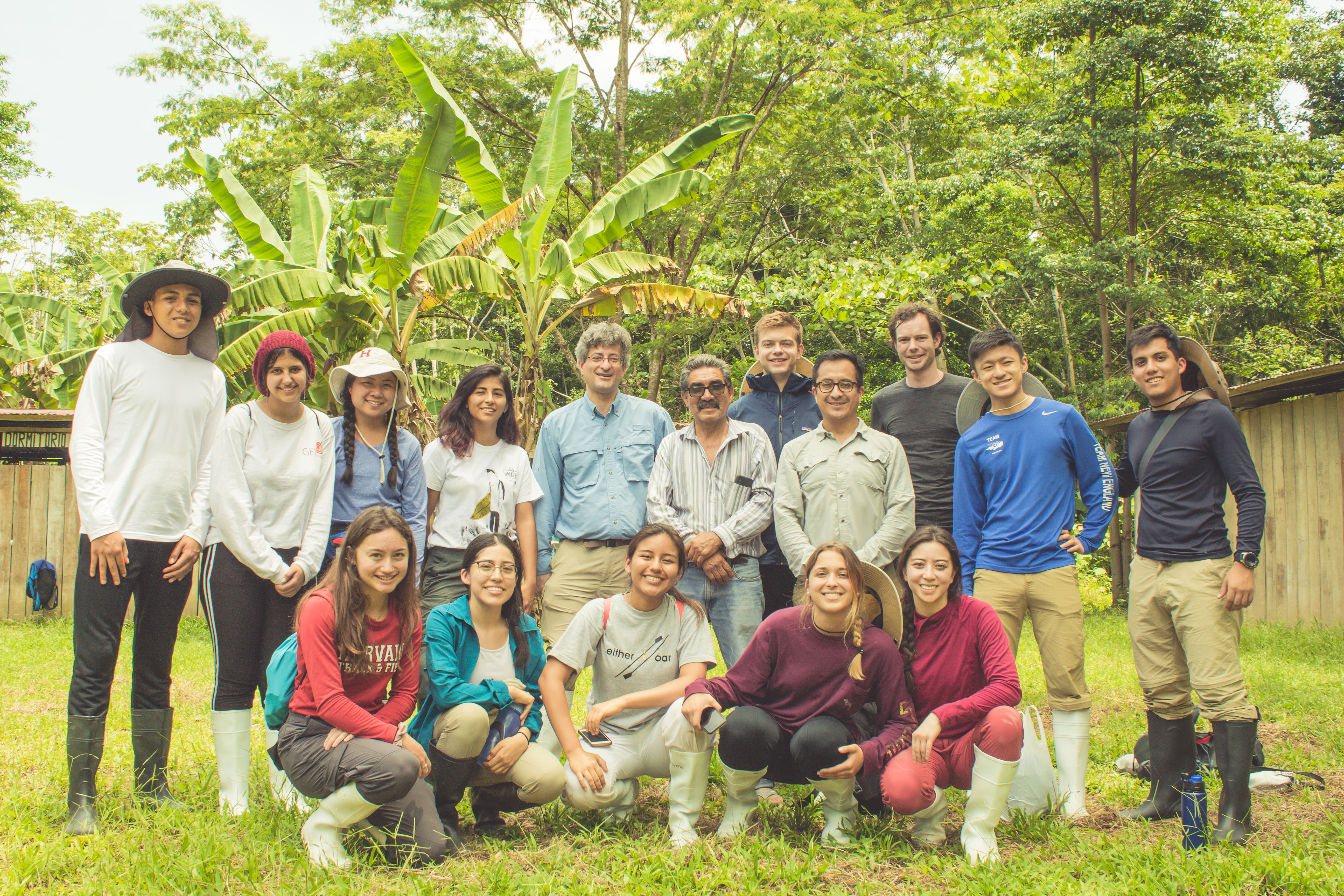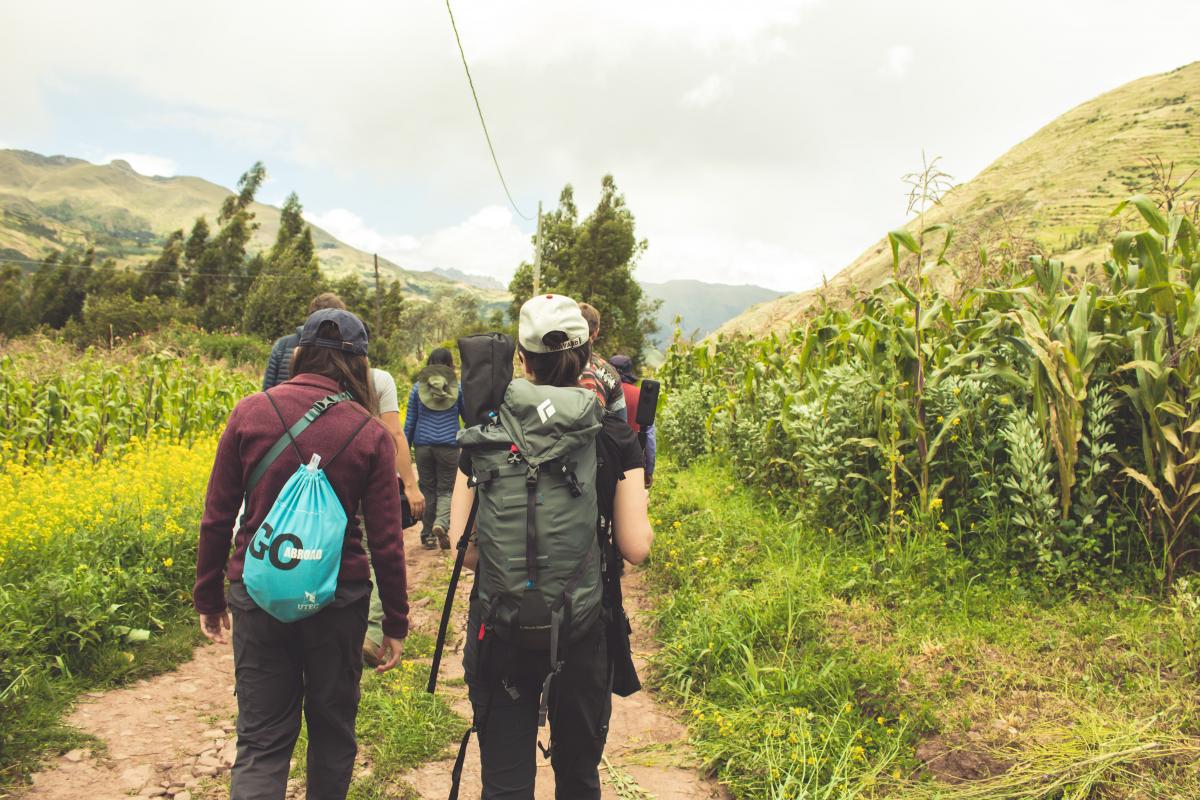UTEC and Harvard work on innovating agriculture

Students from both universities work on a proposal to mitigate the damaging consequences of gold mining in the Peruvian Amazon
The 7th Collaborative Field Program between Universidad de Ingeniería y Tecnología (UTEC) and Harvard John A. Paulson School of Engineering and Applied Sciences (SEAS) took place between the 6th and 17th of January of 2020. The participants consisted of a multidisciplinary group of six students from each university, led by Carlos Ríos, Associate Professor of Mechanical Engineering at UTEC and Joost Vlassak, Abbott and James Lawrence Professor of Materials Engineering (SEAS).
The goal of the collaborative program is to mitigate the harsh consequences of gold mining in the Peruvian Amazon by innovating agriculture. The delegation traveled to Madre de Dios and Cuzco to learn more about the impact of artisanal gold mining and its relationship to agriculture in these regions.
In Madre de Dios, with the support of Centro de Innovación Científica Amazónica (CINCIA) and Instituto de Investigaciones de la Amazonía Peruana (IIAP), students were able to observe the harsh economic, social, and environmental consequences of gold mining in the region due to the lack of regulation and law enforcement. Students had the opportunity to interview a formal miner in the Paolita II concession near the town of Laberinto, gaining practical information on the gold extraction process and the different practices used in artisanal gold mining operations. This visit drove home an important point - people choose to abandon agriculture and turn towards mining because it is highly profitable. Unfortunately, the methods used by most artisanal miners are very harmful, not only to themselves, but also to the environment. Interestingly, most of them are former farmers and are not originally from Madre de Dios. They hail from different regions in the highlands - mainly the regions around Cuzco and Puno, and migrate to Madre de Dios in search of a better livelihood.
In Cuzco, the students visited the communities of Yucay (Urubamba) and Huakaytaqui (Quiquijana) to learn more about their way of living, the support (or lack thereof) from the government, the methods used in agriculture, and the challenges the farmers face every day. This knowledge was vital because, at the end of the program, the students were expected to formulate proposals for projects to make agriculture more attractive and economically rewarding. A good grasp of current agricultural practices leads to more realistic proposals.
It is evident that current practices of gold mining in Madre de Dios have harmful consequences and constitute a broad and complex problem that permeates local society. Solving such a problem requires a complex and multi-pronged approach. In this context, the collaborative program focused on making agriculture more profitable and attractive for local people. The students posed the question how innovation in agriculture could improve the situation in Madre de Dios. Reinforcing agriculture can mitigate the problem in two ways: As agriculture becomes more profitable, local people in the Madre de Dios region will look at agriculture as an alternative way to earn their living. For the same reason, improved agriculture will also reduce migration from the highlands.

To formulate concise problem statements and to develop solutions, students were formed into three multidisciplinary groups, comprising students from both universities and from different concentrations. Throughout the field trip, the groups got together to exchange information, brainstorm ideas, and define precise problem statements. Then the students focused on developing solutions that could have a real impact on the lives of the local farming population. Along every step of the way, professors Carlos Ríos and Joost Vlassak were constantly guiding the groups. They met up with each of them and helped the groups by solving their doubts and reaching a solution that has the potential to work.
This program not only gives the students a better understanding of the direct negative impact of gold mining in these regions. It also provides a broader perspective and teaches the students the value of formulating a concise problem. It also makes it clear to the students that their engineering efforts can have a lasting impact on society.
This program looks for very motivated students with strong social skills and great attitude towards work in a multicultural environment.